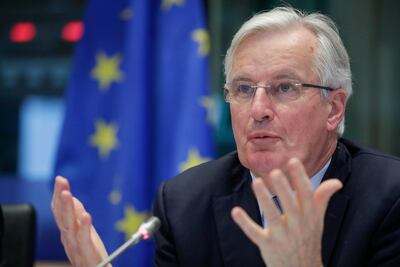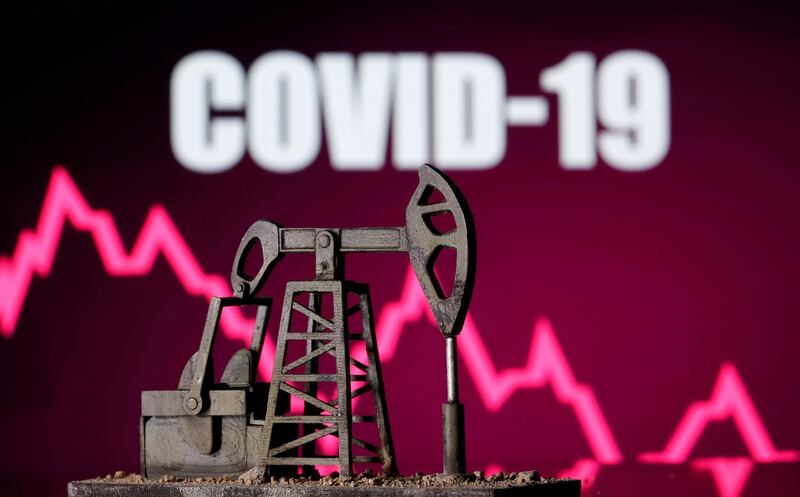European and Asian stock markets plummeted on Friday as the European Union failed to finalise a financial support package to help buoy the economies of the bloc of 27 during the coronavirus pandemic.
The Europe-wide Stoxx 600 dropped 0.6 per cent in morning trading while Germany’s Dax declined by 1 per cent, before making a slight recovery.
In London, the FTSE 100 slumped following data showing a collapse in British retail sales through March. It decreased by 5.1 per cent compared to the previous month - the largest fall on record. The government’s lockdown measures have shut down the high streets and kept millions in their homes. City analysts had forecast a 4 per cent decrease in retail sales for March. Although panic buying of groceries slightly offset some of this slump, analysts predict a bigger fall in April when the full impact of the government’s measures will be felt.
The blue-chip FTSE 100 index fell by 1.3 percent on Friday morning, while the domestically-focused FTSE 250 index lost 0.9 per cent of its value. Both indexes are on track to record their second straight session of weekly losses after a collapse in oil prices earlier this week.
In a further blow to European markets, in a press conference on Friday, chief EU Brexit negotiator Michel Barnier criticised the lack of progress in the latest round of post-Brexit trade talks, accusing the UK of stalling negotiations.
"To tell you the truth.. our objective that we had for tangible progress, this objective has only been partially achieved," Mr Barnier said.
"The United Kingdom did not want to engage seriously on a certain number of fundamental issues," he added.

Global stocks were also rattled by a report saying that Gilead Sciences Inc's experimental drug remdesivir failed to help patients with severe Covid-19 in its first trial. Wall Street's S&P fell 0.1 per cent on the news, despite rising 1.6 percent earlier that day. Shares in Gilead fell by 4 per cent.
Japan’s Topix index fell 0.3 per cent while South Korea’s Kospi index slipped 1.3 per cent on Friday. Hong Kong’s Hang Seng was down 0.6 per cent.
Meanwhile, European leaders convened via videoconference on Thursday evening and agreed that the commission should make “a recovery fund” to help their economies recover from the coronavirus pandemic. But they failed to settle differences over what form the financial aid would take.
After the talks, German Chancellor Angela Merkel signalled she was open to offering major financial support for a coronavirus recovery package worth as around €1tn, but wanted to know how it would be deployed before committing.
“It was clear to everyone that we need such a recovery fund,” Mrs Merkel told reporters after the fourth video conference of EU leaders to determine the measures.
“I want to say very clearly that such a joint solution is in Germany’s interests, because things can only go well for Germany if they go well for Europe.”
But leaders failed to reach a consensus on the size of the fund and whether it should distribute grants or loans, discouraging investors.
More than 100,000 Europeans have been confirmed to have Covid-19, with France, Italy, Spain and the UK being the worst hit with deaths.
France, Italy and Spain have made calls for grants to be given to hard-hit economies, but Germany, Europe’s largest economy, has insisted that all must be paid back as loans.
European Commission President Ursula Von der Leyen said the bloc would find a “sound balance” between grants and loans.







